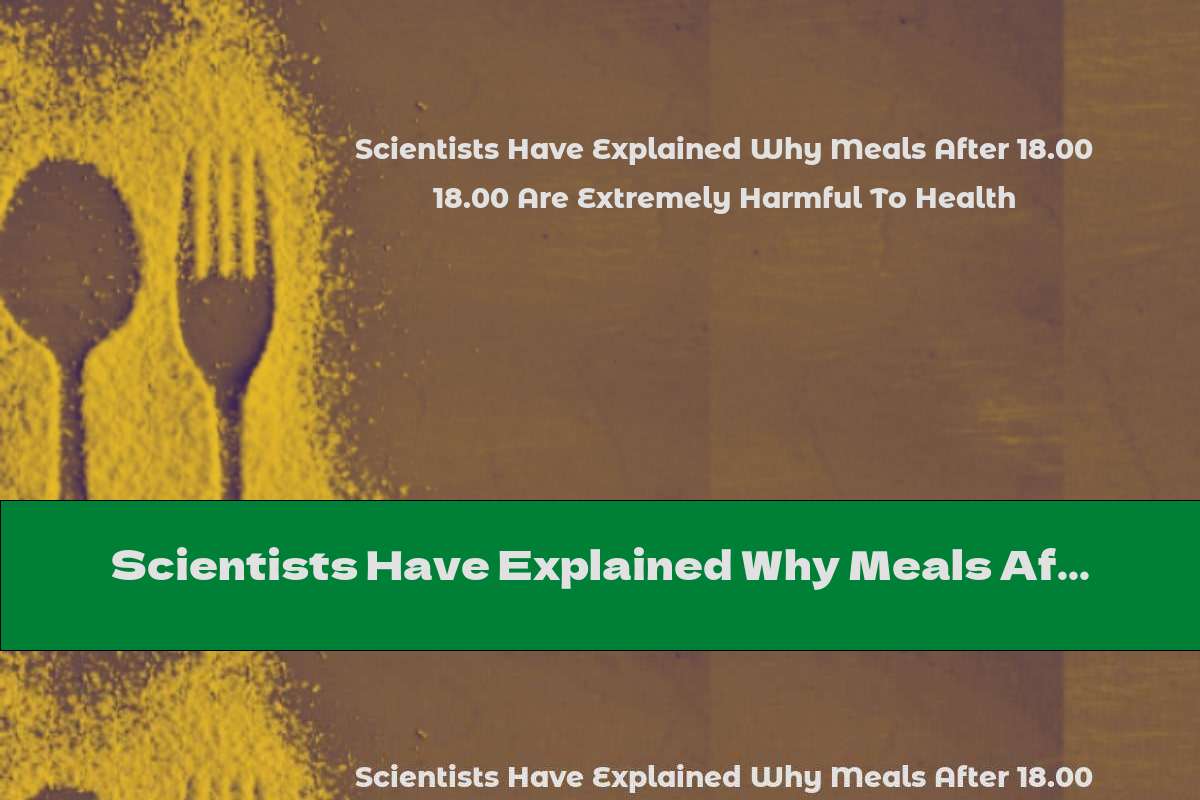Scientists Have Explained Why Meals After 18.00 Are Extremely Harmful To Health
 Author: Nia Rouseberg
Time for reading: ~1
minutes
Last Updated:
February 16, 2026
Author: Nia Rouseberg
Time for reading: ~1
minutes
Last Updated:
February 16, 2026

Eating after 18:00 causes very serious damage to the body and health, provoking the appearance of diseases associated with metabolic disorders. This opinion was expressed by scientists from the Salk Institute (USA).
Eating after 18:00 causes very serious damage to the body and health, provoking the appearance of diseases associated with metabolic disorders. This opinion was expressed by scientists from the Salk Institute (USA).
Experts explain that eating after 6:00 p.m. is a more serious threat than gaining a few extra pounds.
"It is important not only what we eat, but also at what time," said scientists at the conference of the American Heart Association.
Their work shows that women who eat after 6 p.m. have worse heart function, have a higher risk of diabetes and gain excess weight, with a body mass index (BMI) above 30.
"We eat in the evenings and at night thanks to the invention of electric light. For a long time in human history, people ate during the day and slept at night. Therefore, our body is configured to process food more efficiently during the day. The habit of staying awake for a long time and eating after sunset has had an extremely negative effect on our health for many years," experts explained.
According to them, the digestive system depends on daily rhythms. At night, less saliva and digestive juices are produced. The contractions that move swallowed food through the intestines slow down as darkness approaches. This also explains the significant weight gain if a person eats at night, the scientists observed.
In addition, late-night meals do not allow the gastrointestinal tract and other digestive organs (liver, gall bladder) to recover, which, instead of resting, are busy digesting food.
"This increases the risk of inflammation and the development of such diseases as diabetes, heart diseases, and obesity," the scientists stated.
Related Articles
- The Power of Honeysuckle: Health Benefits and Recipes
- The Ultimate Guide to Hickory Smoked Bacon in Nutrition and Healthy Eating
- Nutritional Benefits of Fruit Skewers in Honey Syrup: A Delicious and Healthy Recipe
- Nutritional Benefits of Fruit Skewers in Honey Syrup: A Healthy and Delicious Snack
- Nutrition for Respiratory Health: Supporting Your Lungs with the Right Foods
Top Nutrition Articles Today
- . The Benefits of Myra E: A Powerful Vitamin E Supplement
- . Granadilla - Health Benefits
- . E481: Uses, Benefits, Side Effects, and Safety Regulations
- . The Power of Nori: Health Benefits and Nutritional Value
- . Plain Bagel Calories
- . Nutrition Trends for 2026: Superfoods, Recipes, and Balanced...
- . The Nutritional Benefits of Quaker Oats: A Complete Guide
- . Nutrition Trends 2026: Diet Plans, Recipes, and Wellness Tip...
- . The Role of Micronutrients in Chicken: A Comprehensive Guide
- . First Complementary Foods: What And When To Give A Child (wi...